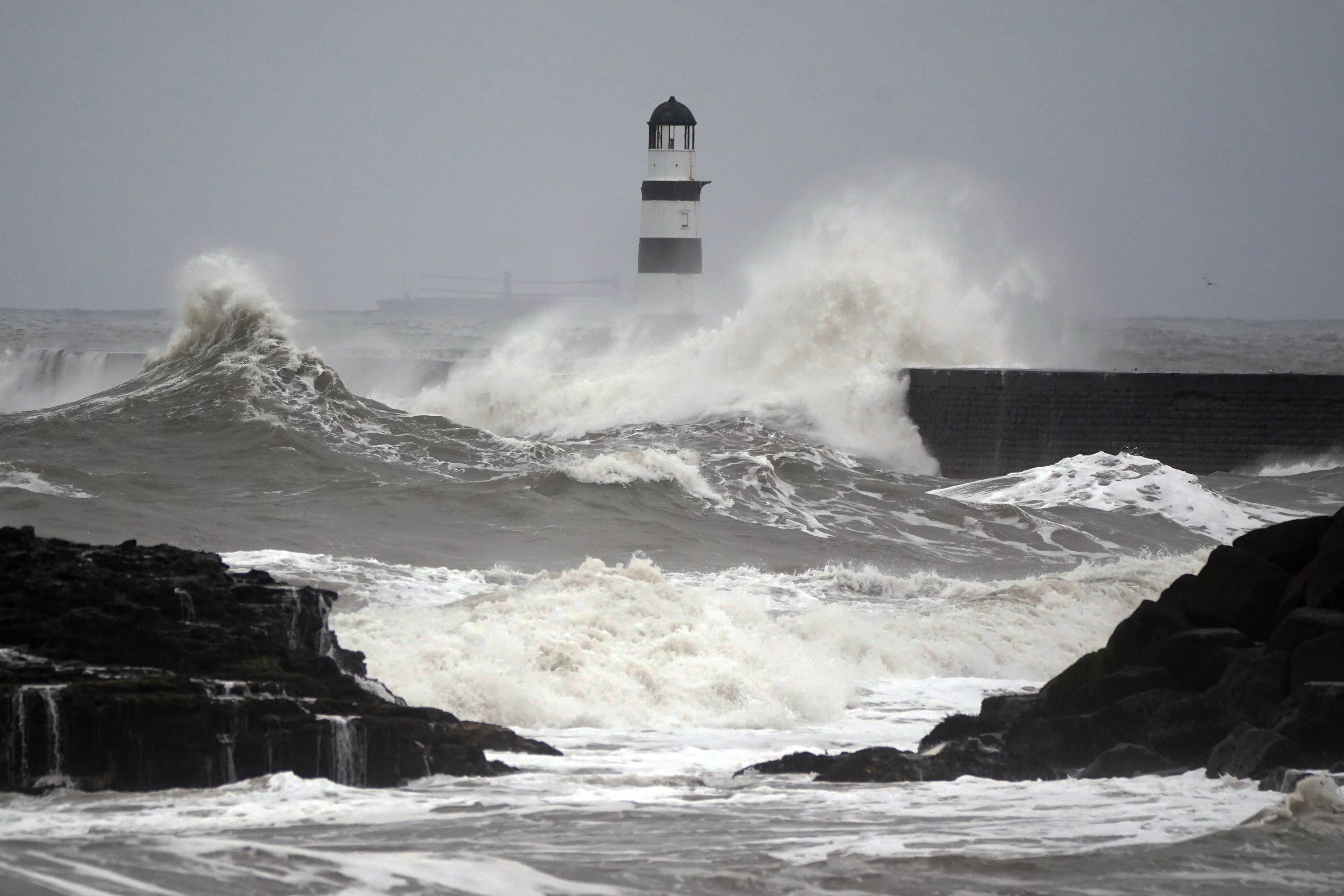Storm Babet has already caused changes to coastline, experts say
Researchers from Newcastle University are bracing the elements to document how the surging seas have eroded the landscape.

Your support helps us to tell the story
From reproductive rights to climate change to Big Tech, The Independent is on the ground when the story is developing. Whether it's investigating the financials of Elon Musk's pro-Trump PAC or producing our latest documentary, 'The A Word', which shines a light on the American women fighting for reproductive rights, we know how important it is to parse out the facts from the messaging.
At such a critical moment in US history, we need reporters on the ground. Your donation allows us to keep sending journalists to speak to both sides of the story.
The Independent is trusted by Americans across the entire political spectrum. And unlike many other quality news outlets, we choose not to lock Americans out of our reporting and analysis with paywalls. We believe quality journalism should be available to everyone, paid for by those who can afford it.
Your support makes all the difference.Storm Babet has already caused changes to Durham’s industrial coastline, experts have said.
Researchers from Newcastle University are bracing the elements to document how the surging seas have eroded the landscape.
They have already recorded waves washing away fragile and toxic coal waste deposits that sit just above the high-water mark, with even heavier seas expected.
At the peak of the coal industry in the North East, approximately 2.5 million tonnes of waste were deposited on Durham’s beaches annually.
Locations like Blast Beach, near Seaham, which featured as a backdrop in the film Alien 3, have seen significant spoil erosion since industrial tipping ceased.
We are approaching a point where the coal waste has almost entirely disappeared and this could lead to active erosion of the cliffs behind it in the coming decade
Now, using drones to survey the beaches and map out the changes, a research team is working to measure the changes along the coastline, particularly in response to Storm Babet.
They have already found around one metre of erosion at Blast Beach as a result of the first high tide on Thursday morning.
Dr Seb Pitman, lecturer in physical geography, said: “We are approaching a point where the coal waste has almost entirely disappeared and this could lead to active erosion of the cliffs behind it in the coming decade.”
Storm Babet is likely to be particularly damaging, Dr Pitman said, because of its prolonged duration.
“What’s unusual with this storm is not necessarily how large the waves will be but for how long,” he said.
“We are expecting to see waves in excess of four metres high for around 72 hours.
“This equates to about six high tides, meaning the storm will have multiple opportunities to remove large parts of the coal platform on the beach.”